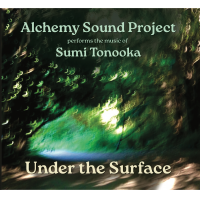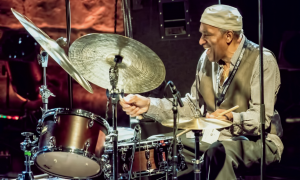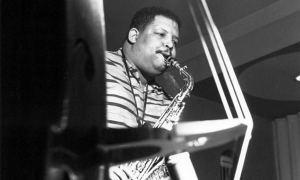Home » Jazz Articles » Catching Up With » Chad Eby: A Closer Look at His Life, Work, and Tribute to a Legend
Chad Eby: A Closer Look at His Life, Work, and Tribute to a Legend
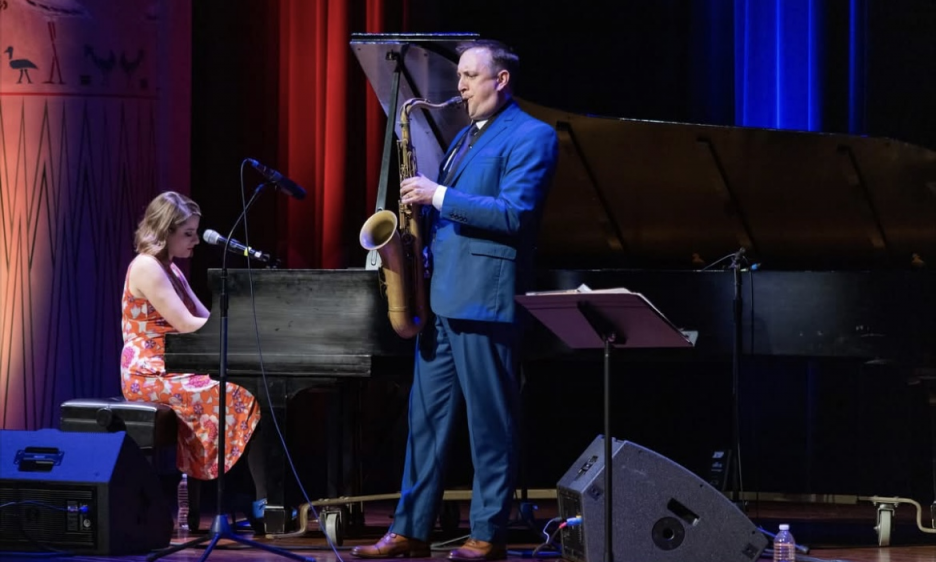
Mr. Shorter's music has taught me that great creativity and experimental music does not just happen, that it is the end result of disciplined study and hard work.
Chad Eby
saxophoneb.1973

Miles Davis
trumpet1926 - 1991

Wayne Shorter
saxophone1933 - 2023
All About Jazz: What city in Iowa were you born in?
Chad Eby: I was actually born in rural Missouri, but I was raised in a tiny Iowa town called Newhall. It is about fifteen to twenty minutes west of one of Iowa's bigger cities, Cedar Rapids.
AAJ: Did you learn to play both the clarinet and saxophone during elementary school?
CE: I started on clarinet in fifth grade, but I did not really like it and thus did not really practice of getting better. Switching to saxophone was definitely the boost I needed.
AAJ: Your first mentor in jazz was Lynne Hart. Can you tell us more about who Lynne Hart is and their influence on you?
CE: Lynne was my first jazz saxophone teacher. I had private lessons from a classical saxophonist before her, but she was my first teacher to officially teach me the nuts and bolts of jazz music. We still have a relationship over thirty years later.
AAJ: You grew up listening to

Stan Getz
saxophone, tenor1927 - 1991
CE: Yes, my father was an avid Stan Getz fan. He had been a saxophonist in an Army band stationed in Japan in the early sixties. The family record collection also had albums by

Count Basie
piano1904 - 1984

Dave Brubeck
piano1920 - 2012
AAJ: What was the first jazz festival you attended?
CE: For sure, that was the first annual Iowa City Jazz Festival, which was in the summer of 1991.
AAJ: Do you remember the lineup from the Iowa City Jazz Festival you attended?
CE: I am pretty sure year one featured a band from Boston called the

Either/Orchestra
band / ensemble / orchestrab.1985

Matt Wilson
drumsb.1964

Ryan Kisor
trumpetb.1973

Chris Potter
saxophone, tenorb.1971
AAJ: Were you already living in North Carolina before you started teaching at University of North Carolina at Greensboro?
CE: No, in fact I had never been here before. The first I had even heard of Greensboro was when a friend encouraged me to apply for the job.
AAJ: Who were some of your earliest musical influences as a child?
CE: Mostly Stan Getz,

Sonny Rollins
saxophoneb.1930

Paul Desmond
saxophone, alto1924 - 1977

Eddie Davis
guitar, electricb.1955

Frank Foster
saxophone1928 - 2011
AAJ: Were you a fan of Miles Davis early on?
CE: Most definitely. We did not have much of his music in our family's record collection other that a few tracks on compilation albums. I actually really heard Miles for the first time, oddly enough, on my girlfriend's family hog farm in 1990 or so. How "Iowa" is that? Anyway, they had a small shelf of CD's with the usual stuff for 40-50 somethings in 1980's Iowa: Carole King,

Elton John
pianob.1946

Eric Clapton
guitar and vocalsb.1945
AAJ: Can you name a few of your favorite Miles Davis albums?
CE: That is a tough question, but the top two that I always come back to are Kind of Blue (Columbia, 1959) and Filles de Kilimanjaro. But I also love Nefertiti, Birth of the Cool, In a Silent Way, ESP, Amandia, Sketches of Spain etc. It is actually easier to list Miles albums that I do not like.
AAJ: What year of college were you first introduced to the music of Wayne Shorter?
CE: I first heard Wayne Shorter when I was in early high school, actually. The album was Heavy Weather by

Weather Report
band / ensemble / orchestraAAJ: How has Wayne Shorter's music impacted your life, both personally and musically?
CE: From a musical perspective, Mr. Shorter's music has taught me that great creativity and experimental music does not just happen, that it is the end result of disciplined study and hard work. As for how his music has affected me personally, I am not sure it has in a tangible way, but his perseverance through great personal trials and turmoil has certainly inspired me to be a better, stronger, more resilient person.
AAJ: Who would you consider your top five jazz saxophonists of all time?
CE: What an impossible question! Like I said regarding Miles records, it would be easier to name my bottom five, which I would never do. If I just start typing and do not overthink:

Charlie Parker
saxophone, alto1920 - 1955

John Coltrane
saxophone1926 - 1967

Steve Lacy
saxophone, soprano1934 - 2004

Sidney Bechet
saxophone, soprano1897 - 1959

Ben Webster
saxophone, tenor1909 - 1973

Sam Rivers
saxophone, tenor1923 - 2011

Johnny Hodges
saxophone, alto1907 - 1970

Branford Marsalis
saxophoneb.1960

JD Allen
saxophone, tenorb.1972

Alexa Tarantino
saxophone, altob.1992
Stephen Riley
saxophone, tenor
John Ellis
saxophone, tenorb.1974

Paul Nedzela
saxophone
Julieta Eugenio
saxophoneTags
Catching Up With
Chad Eby
La-Faithia White
Miles Davis
Wayne Shorter
Stan Getz
Count Basie
Dave Brubeck
Either Orchestra
Matt Wilson
Ryan Kisor
Chris Potter
Sonny Rollins
Paul Desmond
Eddie 'Lockjaw Davis
Frank Foster
Carole King
Elton John
Eric Clapton
Charlie Parker
John Coltrane
Steve Lacy
Branford Marsalis
JD Allen
Alexa Tarantino
Stephen Riley
John Ellis
Paul Nedzela
Julieta Eugenio
Comments
PREVIOUS / NEXT
Support All About Jazz
 All About Jazz has been a pillar of jazz since 1995, championing it as an art form and, more importantly, supporting the musicians who make it. Our enduring commitment has made "AAJ" one of the most culturally important websites of its kind, read by hundreds of thousands of fans, musicians and industry figures every month.
All About Jazz has been a pillar of jazz since 1995, championing it as an art form and, more importantly, supporting the musicians who make it. Our enduring commitment has made "AAJ" one of the most culturally important websites of its kind, read by hundreds of thousands of fans, musicians and industry figures every month.


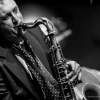
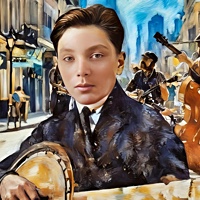
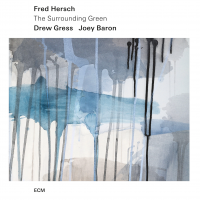



 Buy Now
Buy Now


